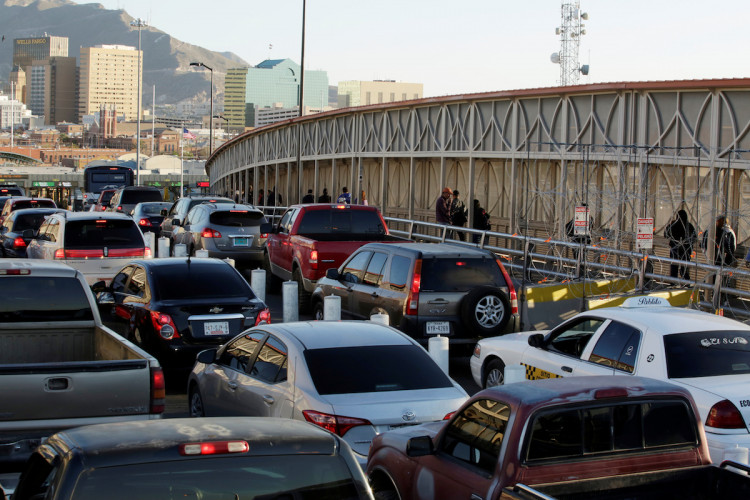The Biden administration has issued a directive to release migrants from nearly all countries in the Eastern Hemisphere into the United States, despite a recent executive order intended to curb illegal immigration. This directive, revealed in a leaked Border Patrol memo, instructs agents in the San Diego sector to process single adults from most Eastern Hemisphere countries through a "Notice to Appear/released on Own Recognizance" (NTA/OR) procedure. The only exceptions are migrants from Russia, Georgia, Uzbekistan, Tajikistan, Moldova, and Kyrgyzstan, who are to be referred for expedited removal.
The memo, first reported by the Washington Examiner, comes shortly after President Biden's executive order aimed at tightening asylum rules took effect. The President announced the order, emphasizing his intent to bypass what he described as Republican obstruction and to use his executive authority to address border issues independently. "I am moving past Republican obstruction and using the executive authorities available to me as president to do what I can on my own to address the border," Biden declared.
Despite the administration's tough rhetoric, the memo indicates a significant gap between policy and practice. Footage obtained by Fox News shows Border Patrol buses releasing hundreds of migrants at a San Diego trolley station daily, contradicting the administration's assurances of stringent border control measures.
The Department of Homeland Security (DHS) has acknowledged the difficulty in deporting individuals from certain Eastern Hemisphere countries, including China, due to these nations' reluctance to accept repatriation flights. During a background call with reporters, DHS officials admitted they are working to gain cooperation from these countries but face significant challenges in the meantime.
NEW: @FoxNews has obtained an internal Border Patrol memo sent to agents in San Diego sector after President Biden’s executive order took effect, instructing them to release single adults from all but six countries in the eastern hemisphere & classifying them as “hard” or “very… pic.twitter.com/OaSLSYbuC1 — Bill Melugin (@BillMelugin_) June 9, 2024
The executive order, which temporarily suspends the entry of migrants across the southern border once daily encounters exceed 2,500 over a week, includes several exceptions. These exceptions apply to legal immigrants, unaccompanied children, and those deemed victims of severe forms of trafficking. Migrants who schedule appointments through the CBP One app at ports of entry, currently averaging 1,500 daily, are also exempt.
Furthermore, the order allows for exceptions based on the totality of circumstances, including significant law enforcement, officer, and public safety considerations, as well as urgent humanitarian and public health interests. This broad range of exceptions has led to criticism that the order lacks the necessary rigor to significantly curb illegal immigration.
Former President Donald Trump criticized the Biden administration's policy as a "public relations executive order." Speaking to Newsmax, Trump said, "First of all, it's a nothing that he did and allowing massive numbers of people still to come in, and it's just misinformation, disinformation, and just another hit job."
The leaked memo and subsequent reporting highlight a stark contrast between the administration's public statements and the realities on the ground. Despite promises of stricter controls, the majority of migrants from the Eastern Hemisphere in the San Diego sector continue to be released into the U.S.
Customs and Border Protection (CBP) officials offered conflicting statements, with some indicating that migrants of all nationalities would continue to be placed into expedited removal proceedings, contradicting the memo's content. A CBP official also noted that lack of funding is impacting the implementation of Biden's original executive order.
This discrepancy has fueled concerns about the administration's ability to enforce its immigration policies effectively. The New York Post reported that tens of thousands of migrants could be exempt from Biden's new order if their home countries refuse to take them back. The Post cited a memo indicating that single adults and family units who are "very hard to remove" may still be processed for expedited removal or placed into section 240 removal proceedings, effectively allowing them to stay in the U.S.






